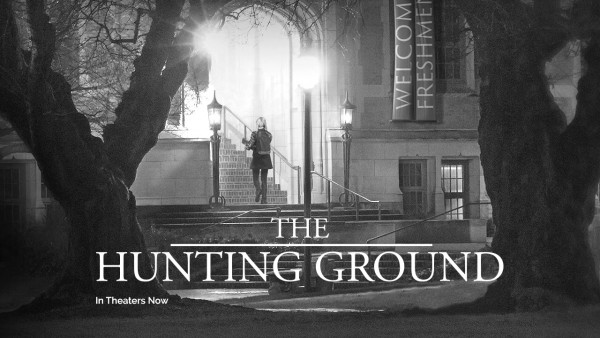
Sexual assault on college campuses is a serious issue that has lately gained a lot of recognition by the media, the public and colleges themselves. Many discussions focus on how to help victims feel comfortable talking about and reporting their experience and others are about the definition of consent and the need for intervention from bystanders.
While all of these are important aspects of the issue, the documentary “The Hunting Ground” illuminated the troublesome treatment of reported cases by colleges.
Screened at SUNY New Paltz on April 27 and co-sponsored by the Take Back The Night Club, the film was directed by Kirby Dick and was followed by a Q&A and discussion with panelists. The panel consisted of Sam Lacovara, a third-year Women’s, Gender and Sexuality Studies major and co-coordinator of the Take Back The Night Club, Tanhena Pacheco-Dunn, the Title IX coordinator on campus, Student Association President Osato Okundaye and sociology major Katherine Zinc, whose recent thesis focused on sexual assault.
This event was part of the Week Against Sexual Violence which started April 26 with the New Paltz Walk Against Rape.
The film follows two former University of North Carolina students, Andrea Pino and Annie Clark, who worked to punish UNC for the mistreatment of reported cases. Both Pino and Clark were sexually assaulted on the Chapel Hill campus, as explained in the film, and after a lot of hard work filed a violation of Title IX complaint to the Department of Education against UNC.
Title IX dictates that no students regardless of sex, be “excluded from participation in or be denied the benefits or any education program or activity receiving federal financial assistance.”
Clark and Pino found that since a safe educational environment is promised by schools, by choosing not to be strict and thorough when investigating cases and determining punishment, the college was contributing to an unsafe environment.
After the film students expressed their concerns with our school’s prevention tactics and treatment of reported cases. Dean of Students Robin Cohen-La Valle expressed that a bystander intervention course is mandatory for many people on this campus, starting this year, including resident directors, faculty and some athletes. She also noted that sexual assault awareness and prevention are topics discussed at freshman orientation.
The panelists gave their take on the movie and the issue itself.
“Why are we putting a framework around what rape is?” Okundaye asked in his critique of the film.
Clark and Pino rallied other students from other schools, victims and others to study Title IX and possibly file complaints against their institution as well. Currently 95 schools are under investigation by the department of education, according to the film.
Students from schools like Harvard, University of California at Berkeley, University of Tulsa, Occidental College and others shared their stories in the movie of how they were treated by administrators after reporting. Many said they were blamed being asked questions like, “Why didn’t you fight back?” or “What would you have done differently if put back in that situation?”
The documentary also displayed shocking statistics, which the panelists said may not be entirely accurate, that showed a severe lack of punishments for the already small number of reports. It also claimed that although less than four percent of college males are athletes, they commit around 19 percent of sexual assaults, as well as mentioning the large number of reported cases of women being assaulted at fraternity houses.
Lacovara said that only eight cases were reported in 2013 on the SUNY New Paltz campus, and only one ended in the expulsion of the student responsible.
Students in need of support or wanting to report an act of sexual violence have many on-campus resources available including University Police, 845-257-2222, Psychological Counseling, 845-257-2920, Office of Student Affairs, 845-257-3261, Office of Residential Life, 845-257-4444, Title XI Coordinator, 845-257-3675, OASIS (Peer Crisis Hotline) 845-257-4945 and the peer hotline HAVEN, 845-257-4930.
All of the panelists agreed that this is an issue that will not even be close to resolved if we all do not work together and stand up against it. Even then, there is only so much that can be done.
Retired Lieutenant of Notre Dame’s Security Pat Cotrell said in the film, “There really is a percentage of just absolutely horrible people.”
